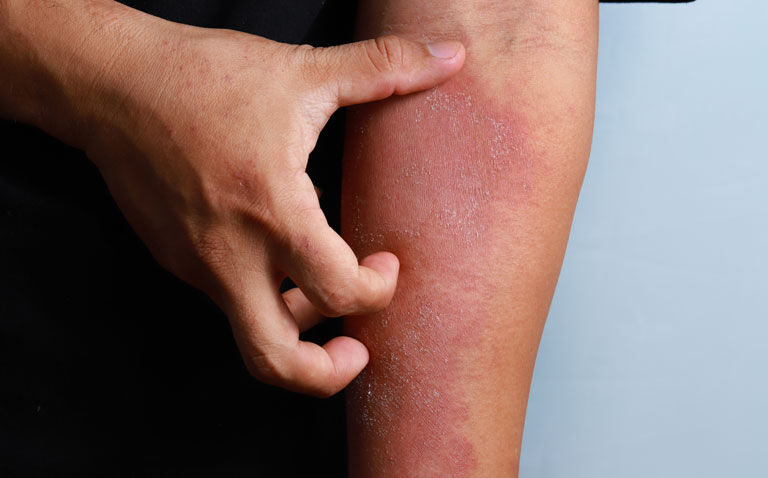Lebrikizumab monotherapy given every two weeks without the use of topical steroids is effective for moderate to severe atopic eczema
Two identical randomised, double-blind, placebo-controlled trials have shown that treatment with lebrikizumab alone in patients 12 years of age and older with moderate to severe atopic eczema led to a significant improvement in disease severity.
Although atopic eczema affects approximately 20% of children, the condition persists in around 7% of adults. Moreover, atopic eczema has a huge negative impact on the quality of life of sufferers and can even increase the risk of suicide ideation.
While it has been recognised in recent years that elevated levels of both interleukin-4 and interleukin-13 (IL-13) are implicated in the pathophysiology of the disease, it has been recently demonstrated that IL-13 is the primary up-regulated cytokine in skin biopsy samples from patients with atopic eczema. The monoclonal antibody, lebrikizumab exerts selective antagonism of IL-13 and which is sufficient to control atopic eczema and improve patient’s quality of life.
In fact, a recent, randomised, phase 3 trial demonstrated the benefit of lebrikizumab when combined with topical steroids in adolescents and adults with moderate to severe atopic eczema. However, whether lebrikizumab is effective alone is currently unclear and was the objective of the current study.
The current publication includes the findings from two identical phase 3 trials, ADvocate1 and ADvocate2, in which patients with moderate-to-severe atopic eczema, aged 12 years and older, were randomised 2:1 to either lebrikizumab at a dose of 250 mg (loading dose of 500 mg at baseline and week 2) or placebo, administered subcutaneously every 2 weeks.
The primary outcome was based on an Investigator’s Global Assessment (IGA) score of 0 or 1 (indicating clear (0) or almost clear (1)), with a reduction of at least 2 points from baseline and was assessed after 16 weeks. The main secondary outcome was a 75% improvement in the Eczema Area and Severity Index score (EASI-75 response), whereas other measures included assessments of itch and of itch interference with sleep.
Lebrikizumab and atopic eczema disease severity
In the first trial, 424 patients with a mean age of 35.5 years (51.8% female) were randomised to lebrikizumab (283) or placebo with similar demographics in the second trial.
In the first trial, the primary outcome occurred in 43.1% of those assigned to lebrikizumab group and in 12.7% placebo patients and this difference was statistically significant (p < 0.001). In addition, a significant difference was seen in the EASI-75 response (58.8% vs 16.2%, p < 0.001). Similar and significant findings were observed in the second trial.
In both trials, a significantly higher proportion of patients given lebrikizumab group also achieved reductions in pruritus and improvements in sleep loss scores.
The authors concluded that 16 weeks of treatment with lebrikizumab was effective in adolescents and adults with moderate-to-severe atopic eczema.
Citation
Silverberg JI et al. Two Phase 3 Trials of Lebrikizumab for Moderate-to-Severe Atopic Dermatitis. N Eng J Med 2023.










